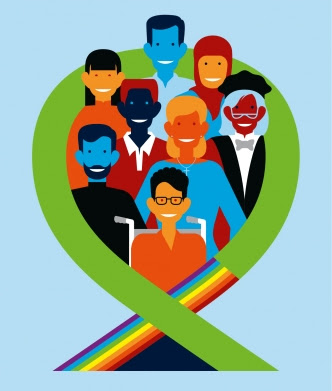Mark 10:17-31 As Jesus was setting out on a journey, a man ran up and knelt before him, and asked him, “Good Teacher, what must I do to inherit eternal life?” Jesus said to him, “Why do you call me good? No one is good but God alone. You know the commandments: ‘You shall not murder; You shall not commit adultery; You shall not steal; You shall not bear false witness; You shall not defraud; Honor your father and mother.’” He said to him, “Teacher, I have kept all these since my youth.” Jesus, looking at him, loved him and said, “You lack one thing; go, sell what you own, and give the money to the poor, and you will have treasure in heaven; then come, follow me.” When he heard this, he was shocked and went away grieving, for he had many possessions.
Then Jesus looked around and said to his disciples, “How hard it will be for those who have wealth to enter the kingdom of God!” And the disciples were perplexed at these words. But Jesus said to them again, “Children, how hard it is to enter the kingdom of God! It is easier for a camel to go through the eye of a needle than for someone who is rich to enter the kingdom of God.” They were greatly astounded and said to one another, “Then who can be saved?” Jesus looked at them and said, “For mortals it is impossible, but not for God; for God all things are possible.”
Peter began to say to him, “Look, we have left everything and followed you.” Jesus said, “Truly I tell you, there is no one who has left house or brothers or sisters or mother or father or children or fields, for my sake and for the sake of the good news, who will not receive a hundredfold now in this age—houses, brothers and sisters, mothers and children, and fields with persecutions—and in the age to come eternal life. But many who are first will be last, and the last will be first.”
Reflection Can you hear Jesus scratching his head when the young man protests, “I have kept all of the commandments;” (Jesus) “You have kept them? You have depended upon yourself to be righteous and upstanding? You really think you have done this by your own wit and will? Poor young man, you lack one thing. Humility. Go and sell all that you own then come and follow me.” In other words, if you want to find eternal life you must admit your dependence on God with you.
And if this shocked the young man who was living in the Ancient Near East, a collectivist culture that stresses the importance of community and interdependence of the people, how much more unfathomable is this for those of us who have been raised in a Post Enlightenment culture that understands people as independent and autonomous. How can we digest Jesus’ counsel when the world around us makes it clear that being dependent upon others is embarrassing if not down right shameful? We are supposed to be self-reliant and anyone who is not ought to stop making excuses and “pull themselves up by their boot straps.”
By our wit and will we are supposed to solve our own problems and accomplish our five year, ten year and lifetime goals. We are praised for being self-reliant, self-sufficient and self-made. All these are respectable qualities except we fail to notice one thing, they separate us from God and one another.
And so Jesus looks at us with love and says, “How hard it will be for those who have wealth to enter the kingdom of God!” As long as we hold fast to our self-determination we are essentially setting our selves apart and claiming sovereignty that belongs to God alone. Being thus bloated with our selves it is no wonder we do not experience God with us. This is why Jesus counsels the young running man and us to sell everything and follow him.
Here is the thing. Most of us get stuck on the first part of Jesus’ instruction. “Sell everything.” Really? Not all of us are cut out to make vows of poverty and live in monasteries. So we join the running man grieving and set out again on our own thereby completely missing Jesus’ second instruction, “follow me.”
To follow means to come after, to subordinate our selves to someone or something else, to accept another’s authority as guide or teacher.* When we consent to follow, we affirm our interconnected interdependence which by definition means we stop clinging to our culturally prescribed identities as self-reliant, self-sufficient, self-made and self-determining creatures. We sell all that baggage and follow Jesus, the teacher, who shows us that the way of eternal life is all about being in unselfish, magnanimous, open handed relationships which are possible when we put our confidence in God with us, rather than our selves.
I believe life is a story and we get to choose whether we want our story to be “with God” or not. If we choose “with God” life, we must get rid of whatever separates us from God. Some of the culprits are our inordinate desires for safety and security, affection and esteem, power and control. If we choose “with God” life we must grow beyond the presumption of being self-reliant, self-sufficient, self-made and self-determining and affirm our purpose in the world with and for one another. When we choose a “with God” life story we realize, it is not all about me, it is all about we. It is not all about mine, it is all about ours. Our “with God” life story is a story of radical inclusiveness; life in and of, with and for the well-being of all people. What story do you choose?
If you found this post to be meaningful please share by clicking on icons below. Thank you.



